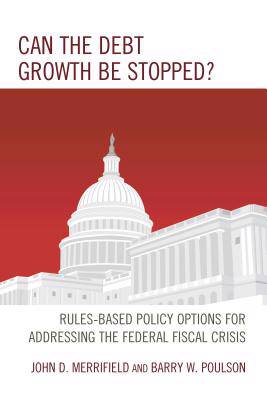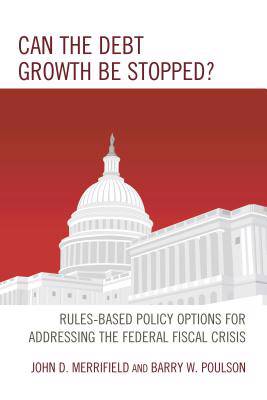
Bedankt voor het vertrouwen het afgelopen jaar! Om jou te bedanken bieden we GRATIS verzending (in België) aan op alles gedurende de hele maand januari.
- Afhalen na 1 uur in een winkel met voorraad
- In januari gratis thuislevering in België
- Ruim aanbod met 7 miljoen producten
Bedankt voor het vertrouwen het afgelopen jaar! Om jou te bedanken bieden we GRATIS verzending (in België) aan op alles gedurende de hele maand januari.
- Afhalen na 1 uur in een winkel met voorraad
- In januari gratis thuislevering in België
- Ruim aanbod met 7 miljoen producten
Zoeken
Can the Debt Growth Be Stopped?
Rules-Based Policy Options for Addressing the Federal Fiscal Crisis
John Merrifield, Barry W. Poulson
Paperback
€ 72,45
+ 144 punten
Omschrijving
Can the Debt Growth be Stopped? explores new fiscal rules introduced in OECD countries to determine if new fiscal rules should be enacted in the United States. The centerpiece of the study is analysis of fiscal rules using a dynamic simulation model.
Specificaties
Betrokkenen
- Auteur(s):
- Uitgeverij:
Inhoud
- Aantal bladzijden:
- 204
Eigenschappen
- Productcode (EAN):
- 9781498518116
- Verschijningsdatum:
- 11/09/2017
- Uitvoering:
- Paperback
- Afmetingen:
- 150 mm x 230 mm
- Gewicht:
- 313 g

Alleen bij Standaard Boekhandel
+ 144 punten op je klantenkaart van Standaard Boekhandel
Beoordelingen
We publiceren alleen reviews die voldoen aan de voorwaarden voor reviews. Bekijk onze voorwaarden voor reviews.









